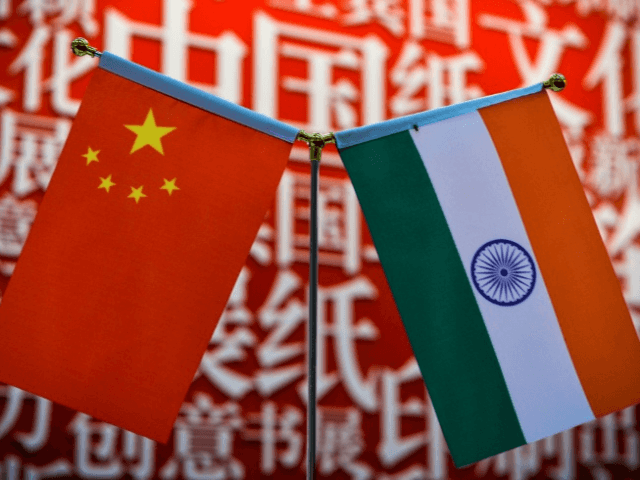Calls are growing in India for a boycott of Chinese products after the latest in a string of violent clashes between Indian and Chinese troops along the contested border left 20 Indian soldiers dead.
The Confederation of All India Traders (CAIT), a powerful small business lobby, condemned “Chinese military aggression” on Wednesday and released a list of “more than 500 broad categories” of imported Chinese goods to boycott.
CAIT estimated the list represents about $13 billion in Chinese imports, a substantial chunk of India’s $70 billion in annual imports from China. The list includes cosmetics, clothing, toys, furniture, electronics, jewelry, auto parts, and other items, about 3,000 items in total. The group said this list was only the “first phase” of its plan to boycott Chinese goods.
“Manufacturing of these items does not require any sophisticated technology, and even if they do, India is well equipped and therefore the goods manufactured in India can be used very easily in place of the Chinese goods, which will reduce India’s dependence on China for these goods,” CAIT said, noting that the first phase of its boycott specifically included items that cannot be affordably manufactured in India.
The Indian motorcycle industry is especially keen to displace Chinese competitors, arguing that it has already beaten China and can teach other Indian industries how to follow suit. An open letter from an Indian motorcycle executive published by News18 on Monday chided Indians for complaining impotently about unfair Chinese trade practices and urged them to get in the game:
In 2018 India became the largest manufacturer of two wheelers in the world (producing twice more than China). Indian companies have started buying out European brands. The market leader of motorcycles in Europe is not BMW, its KTM, which is part-owned by Bajaj. China is slipping fast not only in the manufacturing of bikes, but also in the manufacturing of components. Indian suppliers are beating them hands down. Between three Indian companies—Hero, Bajaj and TVS—India today dominates the world motorcycle market.
Why was this not done in TVs, computers, mobile phones, pharmaceuticals and other industries? It’s the same country, same labour laws, same infrastructure, but not the same entrepreneurs. Indian businessmen are characterized by a myopic vision—it’s both, short-term outlook as well as geographically limited. Of course, the government also does not help.
Even before the deadly border battle on Monday, India was making a strong effort to lure international business away from China, capitalizing on international distrust for the Communist nation in the wake of the Wuhan coronavirus pandemic. The Indian government created an enormous pool of land that foreign manufacturers could rent or purchase, while also promoting a renewal of local industry and national self-reliance.
The RSS, a large nationwide civic organization with ties to Indian Prime Minister Narendra Modi, also called for trade and investment boycotts against China, as well as urging the Indian government to cancel contracts with Chinese firms. An official with the political wing of the RSS hit one of China’s hot buttons on Monday by demanding Tibet be returned to the Tibetans in order to reduce the Chinese military threat in the contested region.
The Times of India on Wednesday described the boycott movement as “massive” and reported protests outside the Chinese embassy in Delhi. India TV noted that hashtags related to boycotting China have become immensely popular on Indian social media. A hashtag for “World War 3” has also become disturbingly popular.
Chinese state media was, unsurprisingly, nonplussed at the prospect of Indian boycotts. China’s Global Times lauded “rational voices in India” who argue that it’s “unrealistic and self-destructive for Asia’s third-largest economy to launch frictions with the largest economy in the region.”
“While assessing the new tensions at the border, India should understand that China’s restraint is not weak. The two nations should cherish their precious development opportunities and maintain good bilateral ties. It would be extremely dangerous for India to allow anti-China groups to stir public opinion, thus escalating tensions,” the Global Times lectured.
Indian Prime Minister Modi sounded like he was in no mood for either threats or lectures from China on Wednesday, vowing that the deaths of Indian soldiers “will not be in vain” and his nation would be “proud that our soldiers died fighting the Chinese.”
“India wants peace but when provoked, India is capable of giving a fitting reply, be it any kind of situation,” Modi warned.

COMMENTS
Please let us know if you're having issues with commenting.